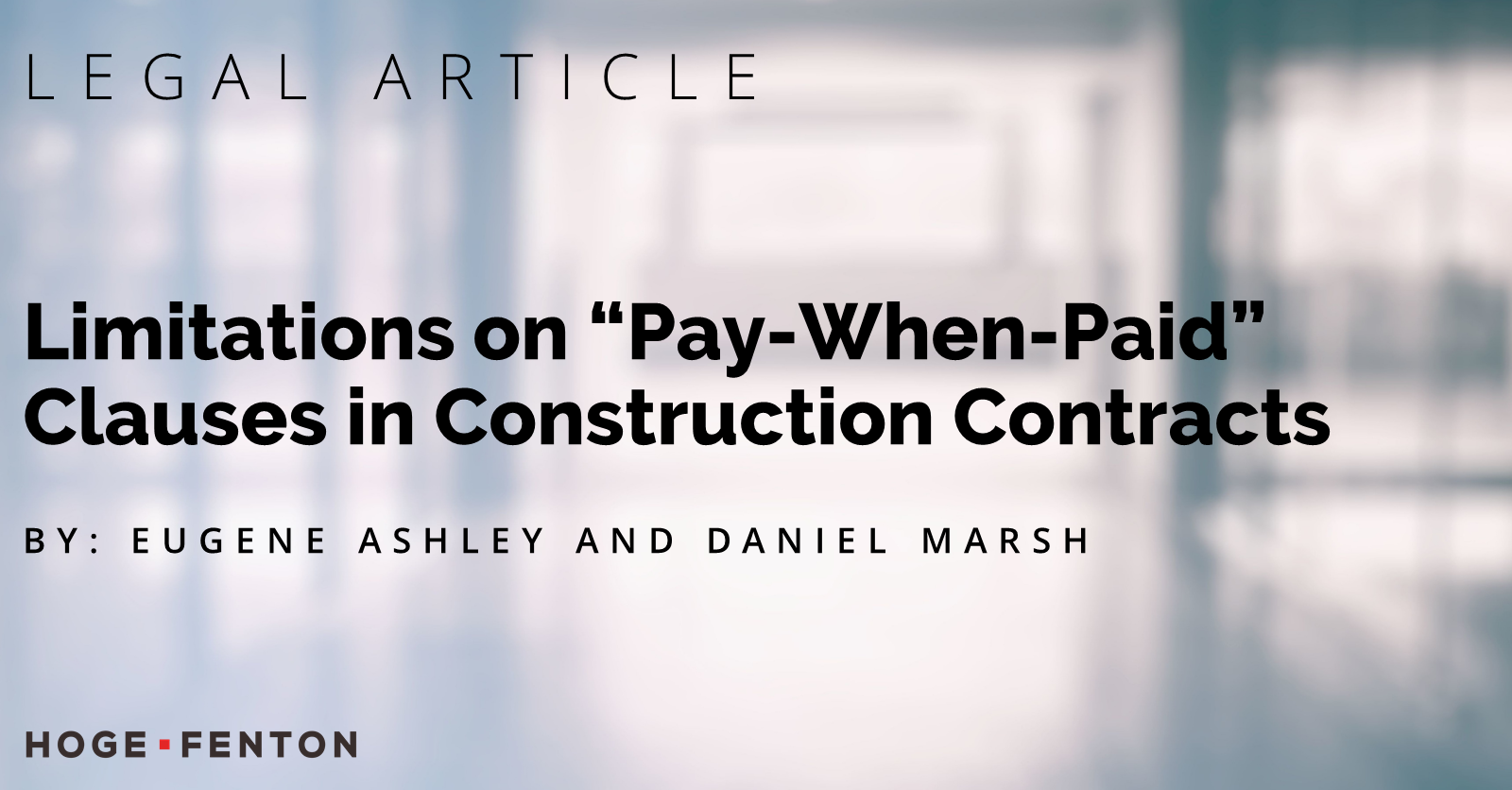Limitations on “Pay-When-Paid” Clauses in Construction Contracts
By Hoge Fenton | 06.12.2020 | Client Alerts

“Pay-when-paid” provisions are common fixtures in construction subcontracts and provide that subcontractors will be paid for their work when the general is paid for that work. These contracts grant the subcontractors the right to payment within a “reasonable time.”
Many contracts contain a provision that “reasonable time” includes the time needed for a general contractor’s lawsuit against an owner to be resolved. Should this situation arise, a subcontractor (Sub) may not be paid by the General Contractor (GC) until the lawsuit is resolved.
The California Court of Appeal recently provided some guidance in the Crosno Construction, Inc. case. Here are a few key takeaways from the case:
- Unenforceable “pay-when-paid” clauses: Some “pay-when-paid” clauses state that a “reasonable time” to pay a Sub includes the time needed for the GC to complete its lawsuit against an owner. Such clauses are probably not enforceable.
- Payment to Subs while unresolved lawsuits exist between the GC and Owner: Assuming the GC has been paid, a Sub who completed their work may not need to wait for the GC’s lawsuit against the Owner to be resolved. Interpreting the law on this point is complex and should be done on a case by case basis.
- Subs seeking recovery on mechanic’s liens or payment bonds should comply with all statutory deadlines, regardless of any “pay-when-paid” provision in the subcontract.
Subcontractors should….
Subs who have “pay-when-paid” contracts should review the contracts to determine which ones include “the time needed for a general contractor’s lawsuit against an owner to be resolved” as part of the “reasonable time” definition. Depending on the specific situation, these clauses may no longer apply and payment may be due. Subs in these situations should contact their attorneys.
General Contractors should….
GCs with “pay-when-paid” contracts should review their contracts to determine which contracts include the “time needed for a GC’s lawsuit against an owner to be resolved” as part of the “reasonable time” definition. These contracts may need to be modified or updated.
GCs who are actively using the “lawsuit” provision to withhold payment from Subs should seek guidance from their attorney to consider their options and to decide the best path forward.
If you need advice on construction law issues, reach out to attorneys Eugene Ashley, Daniel Marsh, or other attorneys in Hoge Fenton’s Construction Practice Group.
 |
 |
|
Shareholder
Construction
Business Litigation
Real Estate & Land Use
+1.408.947.2452
|
Attorney
Construction
Business Litigation
Real Estate & Land Use
+1.408.947.2405
|
This information is provided as an educational service by Hoge Fenton for clients and friends of the firm. This communique is an overview only, and should not be construed as legal advice or advice to take any specific action. Please be sure to consult a knowledgeable professional with assistance with your particular legal issue. © 2020 Hoge Fenton










